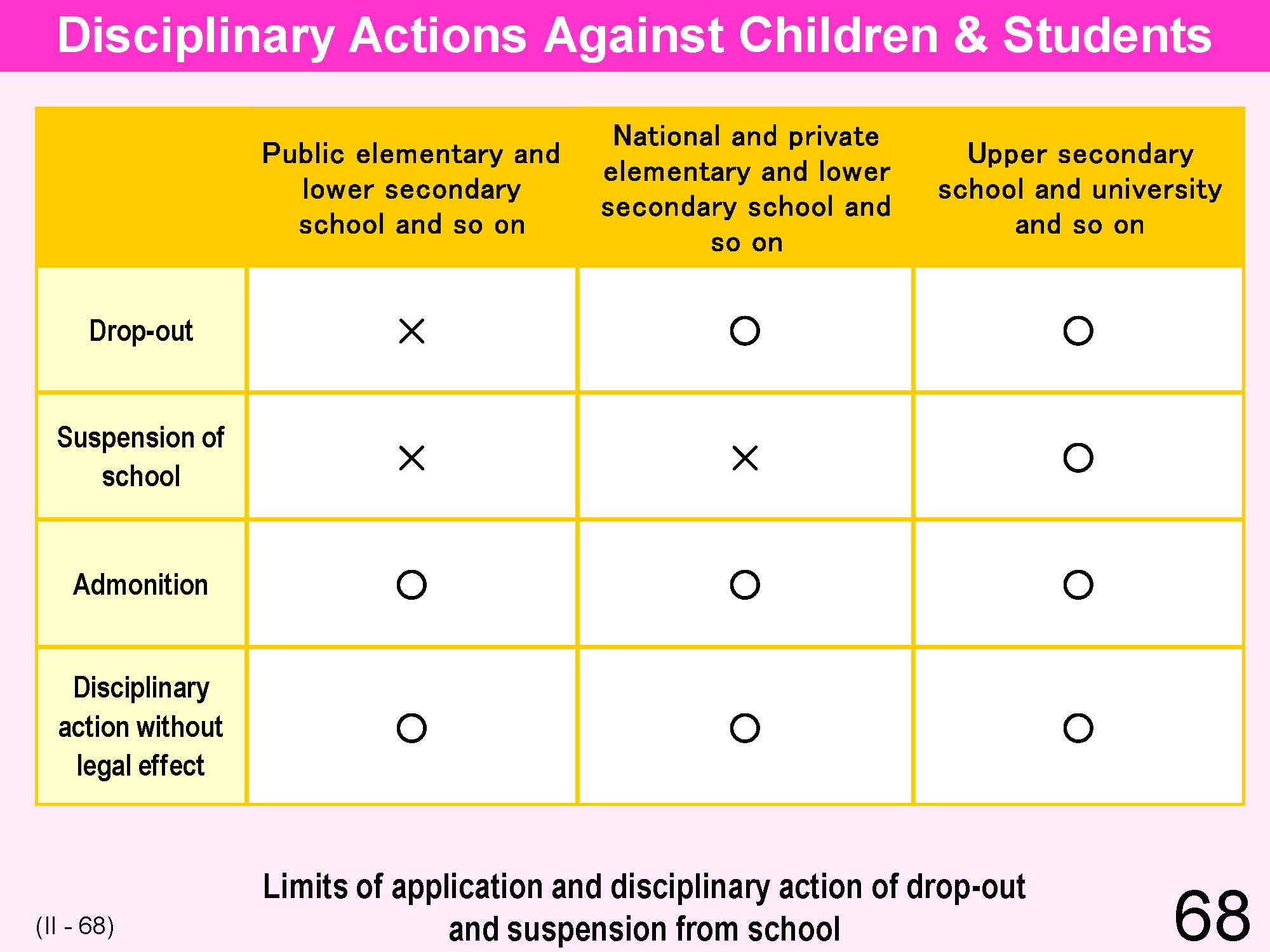| 68 | gII Japanese Educational Administration and Financeh | Previous | Next | JAPANESE |
|---|---|---|---|---|
 |
||||
| When a principal dismisses or suspends students from school and admonishes them through disciplinary action, such actions are generally called disciplinary action as punishment. There are also practical disciplinary actions which can be taken by teachers such as lecturing, forcing students to stand and undertaking duty penalties. Some disciplinary action are set independently by individual schools. For example, absence from school is an offence subject to disciplinary action lighter than actions against drop-out. Some improper student behavior may not be subject to disciplinary action but rather alternative actions may be taken as guidance based on agreements with students. The right to take disciplinary action by teachers applies only to students who belong to the school where the teacher works, although it is not important of the students actually attend their class. Under the guidance structure established at every school, it is important for teachers to understand the character of individual students and their health conditions. There are limits to circumstances where dismissal and suspension from school is an option. This means that it is difficult to dismiss students who belong to public schools and to suspend students of school age. | ||||
Please send your comments and concerns here
kamada@criced.tsukuba.ac.jp
Center for Research on International Cooperation in Educational Development(CRICED) University of Tsukuba
1-1-1, Tennodai, Tsukuba-shi, IBARAKI
305-857, JAPAN